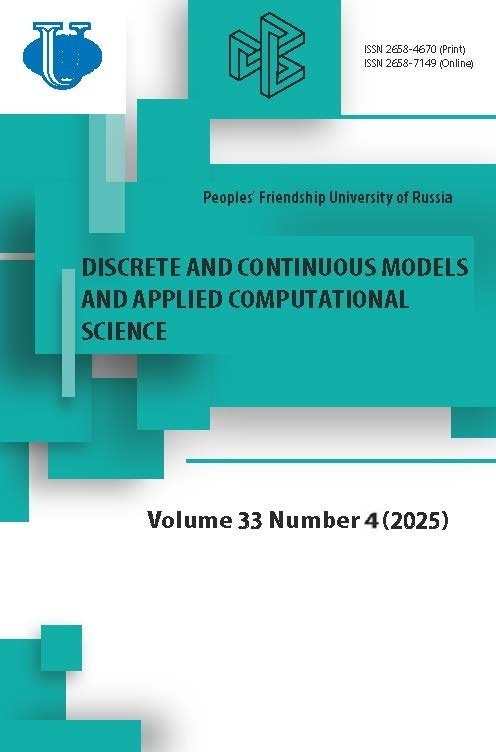Variational-Iteration Algorithms of Numerical Solving BoundState and Scattering Problems for Coupled-Channels Radial Equations
- Authors: Chuluunbaatar O1
-
Affiliations:
- Joint Institute for Nuclear Research
- Issue: No 2 (2008)
- Pages: 49-64
- Section: Articles
- URL: https://journals.rudn.ru/miph/article/view/15586
- ID: 15586
Cite item
Full Text
Abstract
The variational-iteration algorithms of the numerical solving of the bound state and scattering
problems for coupled-channels radial equations are presented in the framework of the
Kantorovich method (KM). Reduction of the boundary problems with conditions of the third
type for systems of coupled radial equations is executed by a finite element method (FEM)
with a high order accuracy on a non-uniform grid. As benchmark calculation to check rate of
convergence and decomposition KM and efficiency of the FEM approximations of problem,
we used exact values of energy, a phase and lengths of dispersion for model of three identical
particles (bosons) on a straight line interacting by the pair zero-range potentials. A comparison
of convergence rate of KM and Galerkin method in numerical calculations of the ground
state energy of the given model is performed.
problems for coupled-channels radial equations are presented in the framework of the
Kantorovich method (KM). Reduction of the boundary problems with conditions of the third
type for systems of coupled radial equations is executed by a finite element method (FEM)
with a high order accuracy on a non-uniform grid. As benchmark calculation to check rate of
convergence and decomposition KM and efficiency of the FEM approximations of problem,
we used exact values of energy, a phase and lengths of dispersion for model of three identical
particles (bosons) on a straight line interacting by the pair zero-range potentials. A comparison
of convergence rate of KM and Galerkin method in numerical calculations of the ground
state energy of the given model is performed.
About the authors
O Chuluunbaatar
Joint Institute for Nuclear ResearchJoint Institute for Nuclear Research
References
Supplementary files














